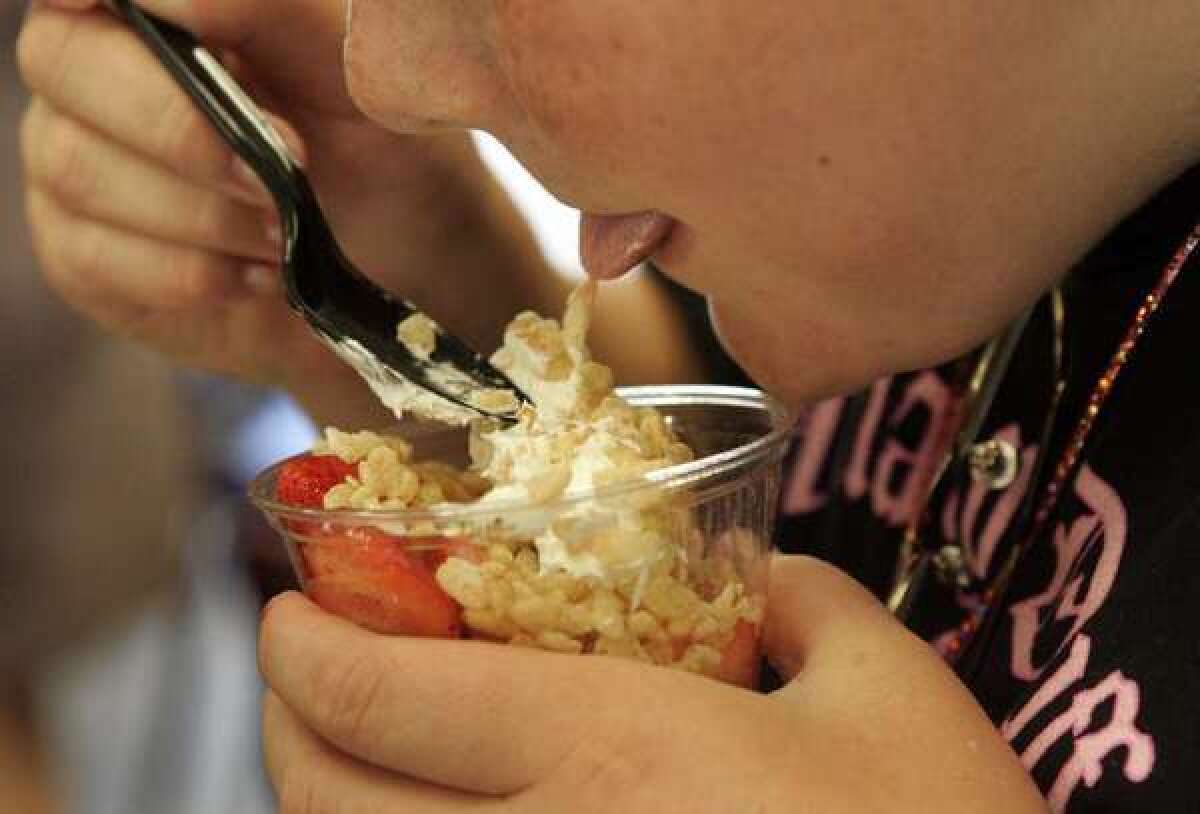Parents, skip weight talk and focus on eating advice, study suggests

- Share via
There’s a growing list of things that clearly do NOT work in helping someone who’s carrying too much weight trim down. Shaming, teasing and hectoring stand a good chance of backfiring, and it remains to be seen whether treating obesity as a disease -- as the American Medical Assn. voted to do last week -- will induce obese patients to lose weight. But a new study finds that when it comes to adolescents, especially those who are overweight or obese, even talking about diets and weight loss is a counterproductive strategy.
The study, published online first on Monday by the journal JAMA Pediatrics, asked parents of 2,348 adolescents, roughly half of whom were overweight, how they talked to their kids about the issue and food, intake and weight. The kids were drawn from high schools and middle schools around St. Paul, Minn., and were roughly equally divided among different races and ethnicities.
Not being overweight was no assurance that a kid would not get “diet and weight” talk from mom or dad: About 1 in 3 such kids heard suggestions to lose weight and how to do it. Among the parents of overweight adolescents, 60% of mothers and 59% of fathers reported having conversations about dieting and weight loss and the child’s need to do it. Only 15% of mothers and 16% of fathers with overweight kids, by contrast, kept the focus on healthful eating. About 20% of the parents kept their mouths closed on the subject.
The overweight kids who got a good dose of healthful eating advice from parents were significantly less likely than those who heard diet-and-weight talk to engage in dieting and unhealthful weight-control behaviors such as fasting or laxative use. Among the 15% of those overweight kids whose parents focused on healthful eating, about 4 in 10 reported dieting or unhealthful weight-control behaviors. But that figure rose to 64% among overweight kids whose parents urged them to diet and lose weight.
Binge-eating, at least, did not appear to be more common among adolescents whose parents urged diet and weight loss than among those with parents that focused on healthful eating.
Fathers’ voices on the diets versus healthful eating issue carried particular weight. While most of the parents and caregivers who reported conversations with their child were women, researchers were able to survey fathers of roughly half of the kids to see how they spoke to their kids on the subject. Compared with kids whose fathers were silent on the subject or who championed healthful eating, adolescents whose dads talked about weight loss and diets showed an even greater likelihood of engaging in unhealthful weight-loss behaviors.
These findings suggest that parents should avoid conversations that focus on weight or losing weight and instead engage in conversations that focus on healthful eating, without reference to weight issues, the authors write. This approach may be particularly important to parents of overweight or obese adolescents.
And dads? Whether or not their kids are overweight, the researchers suggested, they should probably just shut up.
“It may be important to educate fathers to avoid any form of weight-related conversation with their adolescents,” the authors added.






